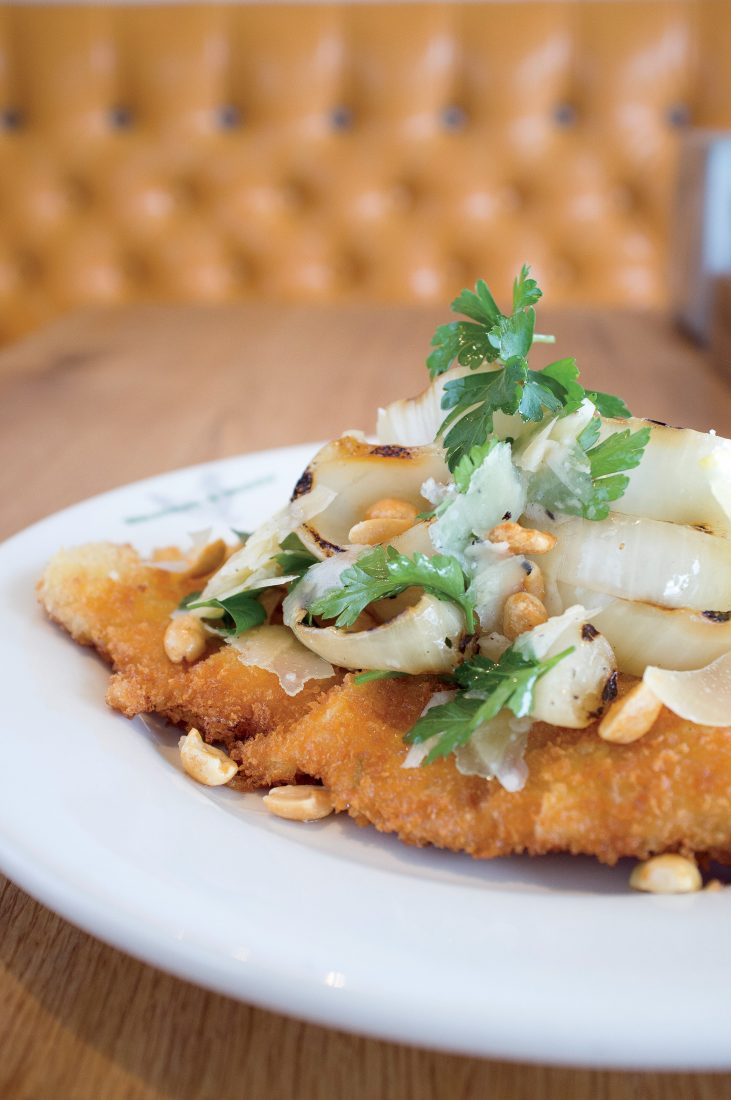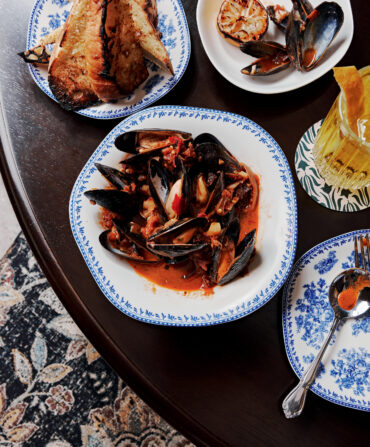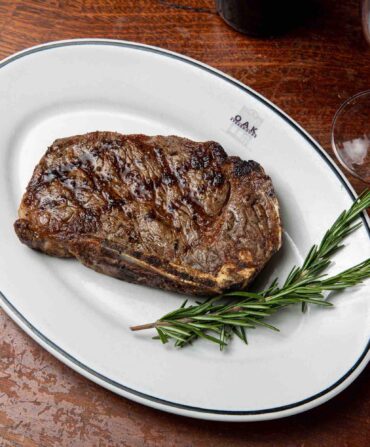We live in a diminished age. You and I wouldn’t know a tree-ripened peach, the kind our grandfathers picked and savored, if it went splat on our heads. What we accept as barbecue is nothing but a fable, served with a side of snide and cornpone. Our standard for fried chicken is set not by our grandmothers, but by chain purveyors who dole out boxes of Frankenbirds from drive-through windows.
That’s the prevailing American narrative about food. And, to a degree, it’s accurate. Even in the South. Over the last two generations, agribusiness has displaced agriculture. And multinationals have replaced meat-and-threes. We’ve lost a lot. But a correction is afoot. Not merely from revivalist chefs working white-tablecloth gigs. But also from entrepreneurs now developing and growing fast-casual restaurant concepts that aim to curb-kick those peddlers of prefab nuggets, pucks, and trans fats.
Bantam & Biddy, a new Atlanta-based multi-unit restaurant company in the making, relies on a roster of suppliers that do the right thing, including Anson Mills, the South Carolina grower and promoter of heirloom grains, and White Oak Pastures, the Georgia farm that sets national standards for grass-fed beef and pastured poultry. In the wrong hands, that approach can play across a menu like an expensive nag. But not at this celadon-and-white shoe box, tucked in a strip mall alongside a RadioShack and a Starbucks.

Photo: Wes Frazer
The restaurant’s unstuffy digs.
Shaun Doty is the lead dog. Once the enfant terrible of the Atlanta fine dining scene, known, in equal measure, for mad chef talents and caterwauling around town, Doty is now a father of two, focused on feeding real people real food. He calls Bantam & Biddy a modern meat-and-three. Along with his brother-in-law Lance Gummere, Doty delivers a twenty-first-century riff on that ideal, in which Dominican sauces garnish Southern standards, and a side of organic red quinoa gets the same billing as a mayonnaise-bound scoop of pimento cheese.
On the three side of the equation, Bantam serves monkey bowls of red peas that taste like the country kin of black-eyed peas. And haystacks of frenched potatoes, fried hard in duck fat and lard. And homages to the crust-topped macaroni and cheese of your dreams, creamed with cheddar and tossed with crisped bread crumbs.
Doty and Gummere don’t hew to tradition. Yes, they serve catfish. But instead of rolling fillets in cornmeal, they batter with a mix of red pea flour and rice flour that results in a ruffled, delicate crust. Pork gets its due. But as a schnitzel, pounded thin in the Austrian style, pan-fried, and garnished with two south Georgia goods that grow together, Vidalia onions and runner peanuts. Sure, they serve banana cream pie. But they call their confection Banoffee and build it on a base of dulce de leche, the caramel-hued South American distillate of sweet milk and sugar.

Photo: Wes Frazer
Lance Gummers and Shaun Doty.
A chefly commitment to feed the masses is nothing new. Back in the 1960s, Jacques Pépin, the dean of French cuisine in America, signed on as a corporate chef for Howard Johnson’s, with a mandate to deliver the goods for all. That affair—along with those orange tile roofs—is now history. This time out, however, the populist tack might work. If it does, you may be talking, fifty years hence, about the time you took a seat at a fledgling chain in an Atlanta strip mall and forked into a slab of meat loaf, ground from grass-fed Georgia cows, swabbed with Kentucky-crafted soy sauce, and priced at about the same rate as an Applebee’s Fiesta Lime Chicken with Mexi-Ranch








